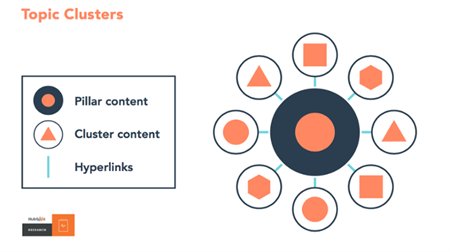Imagine that you work for the tourism board of a major vacation destination. You maintain a website built specifically to draw in vacationers. It offers site visitors rich information about the area and encourages them to book trips. Beautiful, lively photos highlight the area’s many attractions.
The site generally works well. It does draw a fair number of bookings.
But it ranks low in search engine results for theme parks, the area’s most important sector of the tourism trade. It’s a tough set of terms to rank for, with lots of competition from other regions, location-based searches that narrow results, and keyword variations.
That high level of competition makes it crucial for your region’s theme parks to land on the first page of Google search results. Theme parks are the main reason people visit your area. If potential customers don’t find you first, they become far more likely to pack up the kids and take them elsewhere.
How to climb up the rankings? Start by creating a list of target keywords and write content focused on each one. To add even more muscle to your content creation, we recommend a technique we call the SEO content cluster.
How Do SEO Content Clusters Work?
Content clusters are groups of keyword-optimized blog articles or website pages that all target keywords for a similar topic. While each piece of content is typically optimized for its specific keywords, all the content relates to a primary, overall keyword that is the focus of the cluster.
The intent is to have each article rank for its own keywords, drive its own new traffic, and establish the site as an authority on its topic. These articles form the “support” or “cluster” content.
Each article hyperlinks to a central piece of content, often a landing page that’s designed to convert visitors into leads or customers. This content is the “pillar” at the center of the cluster, and you create support articles to drive more traffic to the pillar page so search engines see the site as a greater authority on the topic.

Think of the pillar piece as the roots of a tree and the support articles as its leafy branches. The branches draw in sunlight and nutrients and channel them toward the roots, strengthening the entire tree. Support articles perform the same function. They draw in new traffic and achieve their own search rankings, then pass that search authority on to one of your site’s critical pages.
An example content cluster on our imaginary tourism board site might look like this:
Pillar Content: Theme Parks Landing Page
Cluster Focus: Theme parks
Support Articles:
1. Best theme parks in the U.S.
2. Best theme parks for children
3. Best theme parks for adults
4. Why [our destination] has the best theme parks
5. Best theme parks in [our state]
6. Theme parks to visit in winter
Each article would be a standalone, keyword-optimized piece of content that links back to the pillar content. This is how we create a flow of new traffic and search authority that leads toward the key page on your site.
Why Should I Use Content Clusters?
More Opportunities to Rank for Keywords
The whole cluster focuses on a similar topic, but each support piece targets its own set of keywords. That means that every well-optimized blog article and landing page you create is another opportunity to gain backlinks, search rankings, and new traffic with an entirely different search audience.
Instead of creating 10 articles targeting the same keyword, we’re exploring the same topic from different angles. Any rankings any given article wins helps to attract additional relevant traffic. We can target entirely unique keywords with each piece of content while still funneling engaged traffic back to the highest priority pages on the site.
Establish Authority On a Given Topic
Building a library of well-written, informative content is a great way to establish your site as authoritative in your area. Such a library convinces Google and other search engines that your site is a good source of information for relevant keywords.
If you add even more content on the same topic, that fresh content might more readily reach new audiences and capture high search rankings. By investing in content clusters, you can support more than just your current goals. You can potentially boost your future SEO efforts.
Reach a Focused, Targeted Audience
Focusing on a single subject area that’s relevant to your business allows you to tailor content to your ideal audience. Keyword and audience research allow you to more sharply define the target audience for a given piece of content and to craft new content aimed at that audience segment. When we hit the target, we hit an engaged, in-market audience that’s likely to become a customer.
This makes content clusters a very time-efficient way to pursue new keywords. While backlink management and seeking high-value referral traffic still have their place as strategies, they often demand a great deal of effort and patience – it takes a while to see results. Content clusters require relatively little time investment but still open an active path to new rankings. This balance of effectiveness and efficiency makes them one of our favored strategies when for improving SEO rankings.
Want to get started on developing a content cluster but don’t have the time or team to support it? Reach out to us! Our expert content team is here to help.






